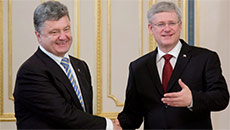TORONTO - Canada's largest mental health and addiction treatment and research centre is calling for the legalization of marijuana, with strict controls that would govern who could buy weed, from where, and in what quantity.
In a policy statement released Thursday, the Centre for Addiction and Mental Health in Toronto said cannabis should be sold through a government-controlled monopoly and with limited availability and an age limit, possibly through outlets similar to provincially operated liquor stores.
"Legalization means that we remove all penalties for cannabis possession and use by adults," said Jurgen Rehm, director of social and epidemiological research at CAMH.
“Canada’s current system of cannabis control is failing to prevent or reduce the harms associated with cannabis use,” he said Wednesday. “Based on a thorough review of the evidence, we believe that legalization combined with strict regulation of cannabis is the most effective means of reducing the harms associated with its use.”
Those harms include respiratory diseases such as lung cancer, the risk of death or disability from motor vehicle accidents, and deleterious effects on cognition, particularly among pot-smoking adolescents because their brains are still developing.
Cannabis use also can also become habitual, said Rehm, noting that about 30,000 people are treated for pot dependence each year in Ontario alone.
Given its potential harms, legalizing and controlling the sale of marijuana in Canada is an important public health measure, Rehm stressed.
Although possessing pot is illegal, a significant proportion of Canadians still use the herb. In fact, Canada has one of the highest rates of cannabis use in the world, with 40 per cent of Canadians having used it at least once in their lifetime.
In Ontario, for instance, a survey showed about the same percentage of people aged 18 to 29 reported having smoked pot in the previous year.
"We have a lot of our adolescents smoking marijuana, so it does not do what it's supposed to be doing," he said of criminalizing cannabis. "We push our youth, our adolescents into an illegal market, and where other drugs are sold from the same dealer."
"And we cannot control all of this unless we legalize the substance ... plus we can control the potency and the quality too."
Part of that control would include restricting sales to consumers over a certain age — such as 19, 20 or 21 — similar to age rules in place for those buying alcohol.
Ian Culbert, executive-director of the Canadian Public Health Association, welcomed the call for legalization by CAMH.
"The war on drugs has failed and it has done more damage than any possible good," said Culbert. "So we have to take a different approach."
"Canadian society isn't overnight going to embrace this idea of legalization and regulation, so it's a conversation that we have to have."
In May, the association issued its own policy statement saying that "Canada needs a public health approach to managing illegal psychoactive substances that de-emphasizes criminalization and stigma in favour of evidence-based strategies to reduce harm."
Benedikt Fischer, an addictions expert at B.C.'s Simon Fraser University, said the federal government's insistence on criminalizing marijuana possession and use has led to "hundreds of thousands" of Canadians over the years carrying a criminal record, which can have a far-reaching impact on their lives, including being unable to qualify for certain jobs.
"And we're not effectively deterring cannabis use nor are we effectively preventing harms," said Fischer, adding that pricing of a legalized product is also a key element of regulation — high enough to prevent too much use, but not so high it would send people to the black market looking for a less expensive product.
"The objective is not to make cannabis as cheaply available to as many people as possible, but really to make sure that people who want to consume cannabis have a safe and regulated and controlled supply that they choose over the black market," he said.
Fischer said the federal government already has a model in place for a legalized and regulated industry in licensed growers of marijuana for medical purposes. Recreational pot is no different than medicinal weed, he said, and there are purportedly hundreds of applications by other growers seeking licenses.
Rehm said a legalized system would need to be designed at the federal level and given the blessing of Parliament, but CAMH does not advocate following the somewhat wild-west example of Colorado, which has legalized pot but has few constraints on who can sell the product or to whom.
"That's exactly what we do not want."





